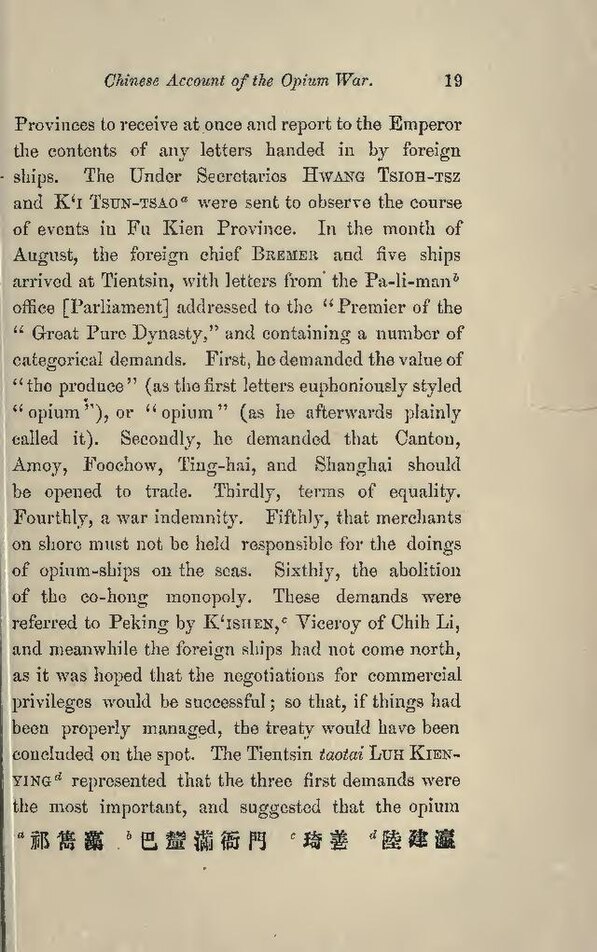Provinces to receive at once and report to the Emperor the contents of any letters handed in by foreign ships. The Under Secretaries Hwang Tsioh-tsz and K‘i Tsun-tsao[1] were sent to observe the course of events in Fu Kien Province. In the month of August, the foreign chief Bremer and five ships arrived at Tientsin, with letters from the Pa-li-man[2] office [Parliament] addressed to the "Premier of the Great Pure Dynasty," and containing a number of categorical demands. First, he demanded the value of "the produce" (as the first letters euphoniously styled "opium"), or "opium" (as he afterwards plainly called it). Secondly, he demanded that Canton, Amoy, Foochow, Ting-hai, and Shanghai should be opened to trade. Thirdly, terms of equality. Fourthly, a war indemnity. Fifthly, that merchants on shore must not be held responsible for the doings of opium-ships on the seas. Sixthly, the abolition of the co-hong monopoly. These demands were referred to Peking by K‘ishen,[3] Viceroy of Chih Li, and meanwhile the foreign ships had not come north, as it was hoped that the negotiations for commercial privileges would be successful; so that, if things had been properly managed, the treaty would have been concluded on the spot. The Tientsin taotai Luh Kien-ying[4] represented that the three first demands were the most important, and suggested that the opium
Page:Chinese account of the Opium war (IA chineseaccountof00parkrich).pdf/35
